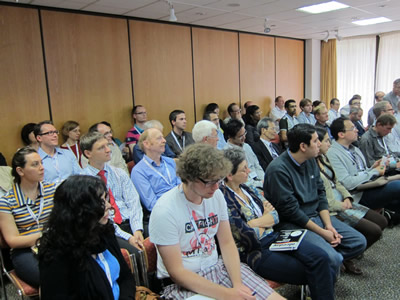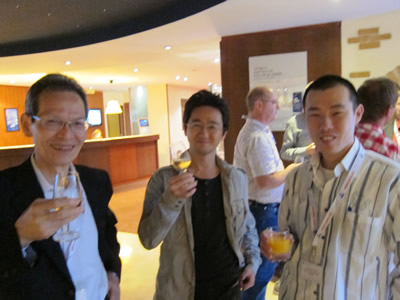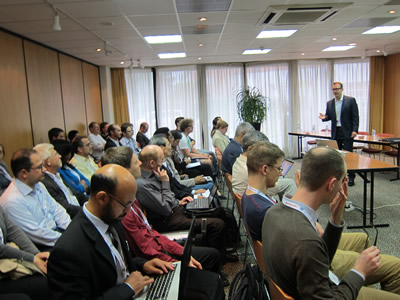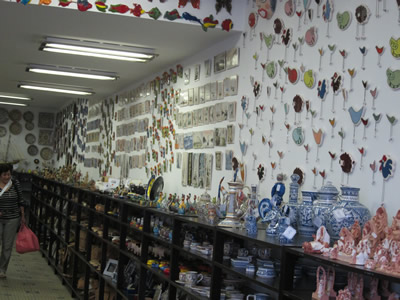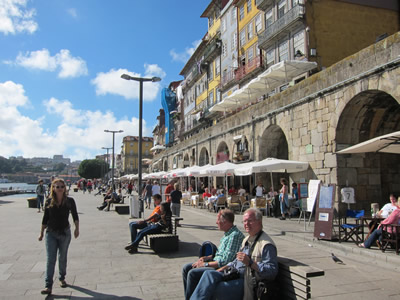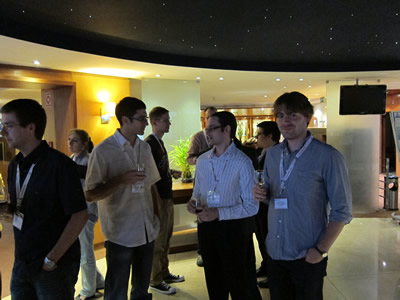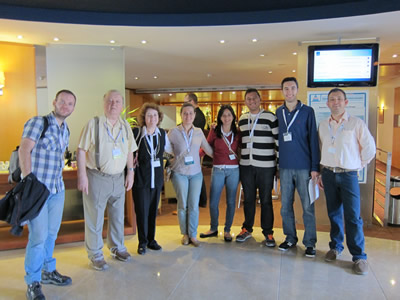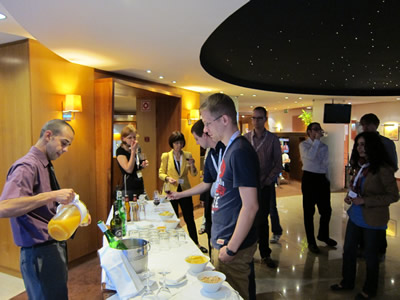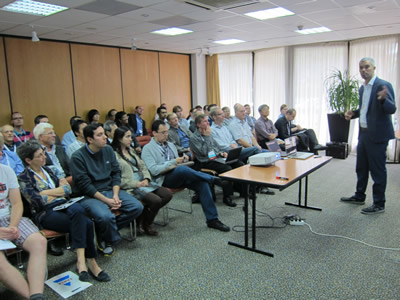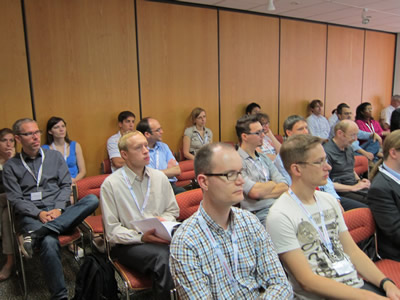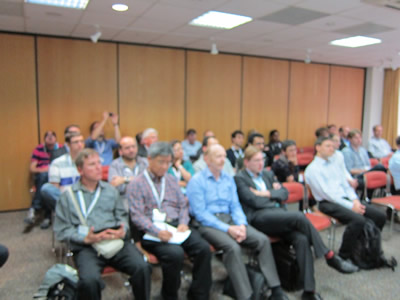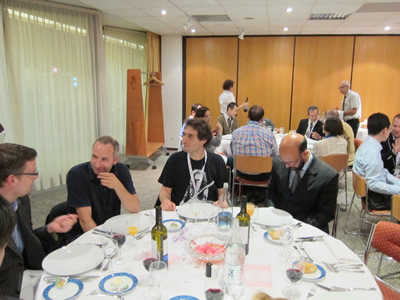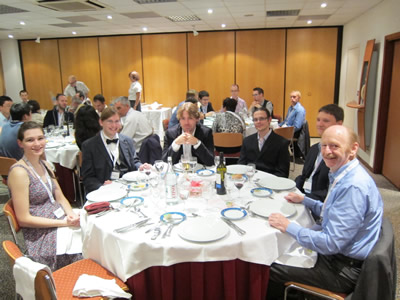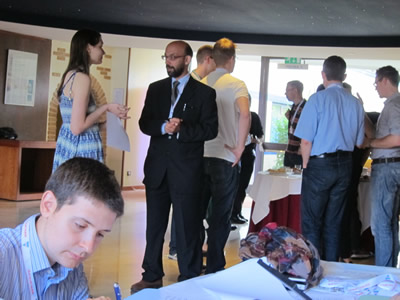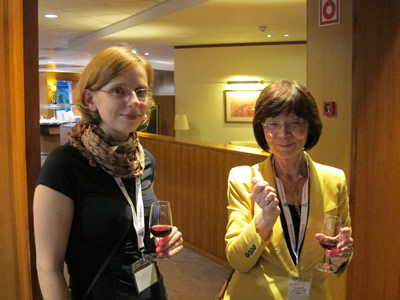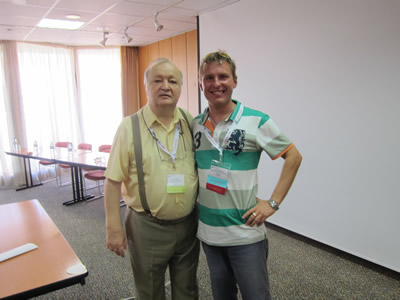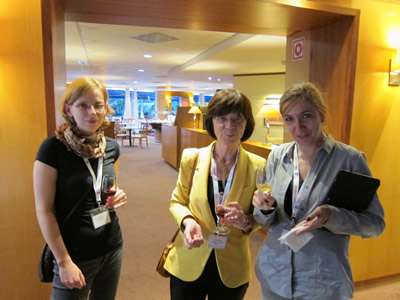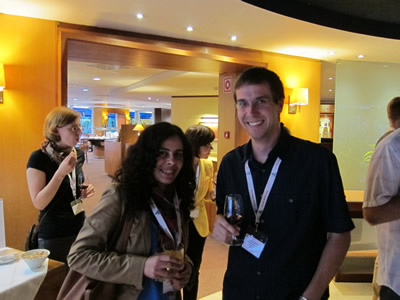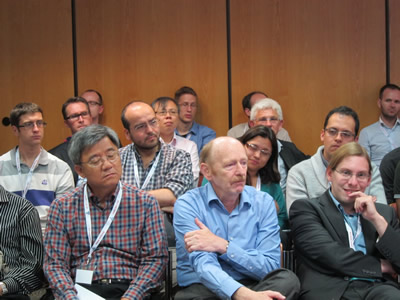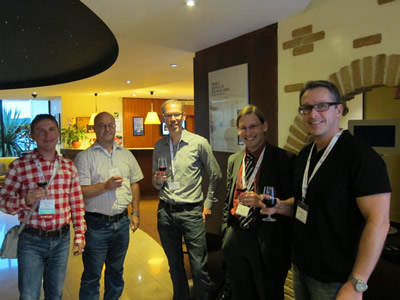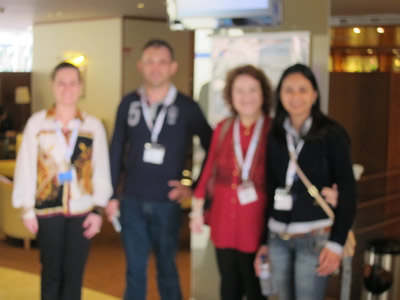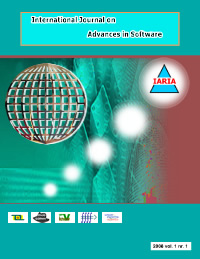ADAPTIVE 2021 - The Thirteenth International Conference on Adaptive and Self-Adaptive Systems and Applications
April 18, 2021 - April 22, 2021
ADAPTIVE 2021: Call for Papers
Onsite and Online Options: In order to accommodate a large number of situations, we are offering the option for either physical presence or virtual participation (pdf slides or pre-recorded videos).
ADAPTIVE 2021, The Twelfth International Conference on Adaptive and Self-adaptive Systems and Applications, targets advanced system and application design paradigms driven by adaptiveness and self-adaptiveness. With the current tendencies in developing and deploying complex systems, and under the continuous changes of system and application requirements, adaptation is a key feature. Speed and scalability of changes require self-adaptation for special cases. How to build systems to be easily adaptive and self-adaptive, what constraints and what mechanisms must be used, and how to evaluate a stable state in such systems are challenging duties. Context-aware and user-aware are major situations where environment and user feedback is considered for further adaptation.
ADAPTIVE 2021 is aimed at technical papers presenting research and practical results, industrial small- and large-scale systems, challenging applications, position papers addressing the pros and cons of specific topics, such as those being discussed in the standard fora or in industry consortia, survey papers addressing the key problems and solutions on any of the topics, short papers on work in progress, and panel proposals.
We solicit both academic, research, and industrial contributions. We welcome technical papers presenting research and practical results, position papers addressing the pros and cons of specific proposals, such as those being discussed in the standard fora or in industry consortia, survey papers addressing the key problems and solutions on any of the above topics short papers on work in progress, and panel proposals.
Industrial presentations are not subject to the format and content constraints of regular submissions. We expect short and long presentations that express industrial position and status.
Tutorials on specific related topics and panels on challenging areas are encouraged.
The topics suggested by the conference can be discussed in term of concepts, state of the art, research, standards, implementations, running experiments, applications, and industrial case studies. Authors are invited to submit complete unpublished papers, which are not under review in any other conference or journal in the following, but not limited to, topic areas.
All topics and submission formats are open to both research and industry contributions.
ADAPTIVE 2021 conference tracks:
Trends in adaptive and self-adaptive systems
Collective adaptation and self-adaptation; Adaptive mechanisms in social computing; Self-adaptive cloud architectures; Adapting workflows in networked clouds; Adaptive algorithms in 5G Cloud networks; Automatic cloud adaptation; Automated cloud brokerage; Context-aware adaptation and self-adaptation for Smart cities; Self-Protective multi-Cloud applications; Socially-driven and self-organizing cloud networking; SLA agreements optimization via autonomous agents; Self-adaptation in mobile environments; Adaptive mechanisms in Internet of Things (IoT) and IoD (Internet of Drones); Adaptation in data-centric control; Self-Society; Adaptation in large scale systems; Self-optimization in Software-Defined Networks (SDN); Self-aware adaptation for analyzing big data; Self-adaptation in high-speed signals processing; Self-adapting e-Health systems
Fundamentals and design of adaptive systems
Fundamentals on adaptive and self-adapting systems; Frameworks and architectures for adaptive supporting platforms; Architectures for adaptive applications; Specification of adaptive behavior; Specification of adaptive structures and topologies; Design and implementation of adaptive components; Composition of adaptive behaviors and structures; Adaptive individual and collective behavior and structures; Adaptive deterministic and non-deterministic behavior; Semantic modeling
Adaptive entities
Adaptive environments; Adaptive hardware configurations; Adaptive software applications; Adaptive protocols; Adaptive algorithms; Adaptive and interactive interfaces; Adaptive filters; Adaptive clock speeds; Adaptive schedulers; Adaptive load balancers
Adaptive mechanisms
Adaptive real-time strategies; Learning-based adaptive strategies; Adaptive mechanisms (trees, ant algorithms, fuzzy-logic, etc. ); Agent based-adaptive mechanisms; Policy- based adaptation; Feedback-based adaptive systems; Context-aware adaptation; User-aware adaptation
Adaptive applications
Adaptive artificial intelligence in computer wargames; Intelligent complex adaptive systems; Adaptive virtualization; Adaptive social networks; Adaptive entertainment applications; Adaptive disaster recovery systems; Anticipative adaptive systems; Fault-tolerant adaptive systems; Adaptive ad hoc networks; Application domains, e,g., building (AEC projects, simulation models, facility management), tourism, etc.; Adaptive economic applications (finance, stock exchange, regulatory decisions, etc.); Adaptive vehicular traffic
Adaptivity in robot systems
Adaptive robot behavior; self-organization and emergence; flexible and reconfigurable robot structures; adaptation in collective and swarm robotics
Self-adaptation
Theory of self-adaptation and control; Self-adaptive networks, systems, and applications; Self-adaptive services; Self-adaptive behavior and topology/structure; Specification of self-adaptive behavioral control
Self-adaptation applications
Self-monitoring and self-management; Self-configuration, self-healing, self-management; Self-defense, self-protection, self-diagnosis; Self-adaptation of overlay networks; Self-adaptation in ad hoc sensor networks; Context-aware self-adaptation of networks and services
Computational Trust for Self-Adaptive Systems
Trust models for adaptive systems; Trust models for self-organizing and autonomics systems; Agent-based trust models for cooperation; Privacy and Security in self-organizing and adaptive systems; Human and social factors involved in trust and adaptation; Applications of trust and security on adaptive systems, with a focus on web-based applications, social networks, social search; Trust models for self-organizing systems of information (wikis, forums, blogs.); Trust and personalisation for enabling adaptation; Models for learning trust and the evolution of trust; Decentralised trust models; Case studies; Theoretical trust models for self-adaptation
Assurances and metrics for adaptive and self-adaptive systems
Quality assurance of (self-x) mechanisms; Stability and convergence; Optimal (self-) adaptation; Accuracy validation of (self-) adaptation; Verification; Testing real-time (self-) adaptive performance; Performance analysis of (self-x) mechanisms
Deadlines:
Submission | Feb 08, 2021 |
Notification | Mar 03, 2021 |
Registration | Mar 13, 2021 |
Camera ready | Mar 16, 2021 |
Deadlines differ for special tracks. Please consult the conference home page for special tracks Call for Papers (if any).
INSTRUCTION FOR THE AUTHORS
Authors of selected papers will be invited to submit extended versions to one of the IARIA Journals.
Publisher: XPS (Xpert Publishing Services)
Archived: ThinkMindTM Digital Library (free access)
Prints available at Curran Associates, Inc.
How to submit to appropriate indexes.
Only .pdf or .doc files will be accepted for paper submission. All received submissions will be acknowledged via an automated system.
Contribution types
- regular papers [in the proceedings, digital library]
- short papers (work in progress) [in the proceedings, digital library]
- ideas: two pages [in the proceedings, digital library]
- extended abstracts: two pages [in the proceedings, digital library]
- posters: two pages [in the proceedings, digital library]
- posters: slide only [slide-deck posted on www.iaria.org]
- presentations: slide only [slide-deck posted on www.iaria.org]
- demos: two pages [posted on www.iaria.org]
FORMATS
Only .pdf or .doc files will be accepted for paper submission. All received submissions will be acknowledged via an automated system.
Final author manuscripts will be 8.5" x 11", not exceeding 6 pages; max 4 extra pages allowed at additional cost.
Helpful information for paper formatting for MS Word can be found here.
There is a community provided LaTeX template: the CTAN package iaria (with full IARIA formatting rules, including IARIA citation style, but for providing citation style it is tightly bound to pdflatex+biblatex+biber). In addition, there is also iaria-lite (not bound to pdflatex+biblatex+biber, but compatible with any TeX stack; thus, it cannot provide the IARIA citation formattings, but only the titlepage and content-related IARIA formatting rules). Based on the iaria package, there is a minimal working example as Overleaf template. When you are using the LaTeX templates, please still adhere to the additional editorial rules.
Slides-based contributions can use the corporate/university format and style.
Your paper should also comply with the additional editorial rules.
Once you receive the notification of contribution acceptance, you will be provided by the publisher an online author kit with all the steps an author needs to follow to submit the final version. The author kits URL will be included in the letter of acceptance.
We would recommend that you should not use too many extra pages, even if you can afford the extra fees. No more than 2 contributions per event are recommended, as each contribution must be separately registered and paid for. At least one author of each accepted paper must register to ensure that the paper will be included in the conference proceedings and in the digital library, or posted on the www.iaria.org (for slide-based contributions).
CONTRIBUTION TYPE
Regular Papers (up to 6-10 page article -6 pages covered the by regular registration; max 4 extra pages allowed at additional cost- ) (oral presentation)
These contributions could be academic or industrial research, survey, white, implementation-oriented, architecture-oriented, white papers, etc. They will be included in the proceedings, posted in the free-access ThinkMind digital library and sent for indexing. Please submit the contributions following the instructions for the regular submissions using the "Submit a Paper" button and selecting the appropriate contribution type. 12-14 presentation slides are suggested.
Short papers (work in progress) (up to 4 pages long) (oral presentation)
Work-in-progress contributions are welcome. These contributions represent partial achievements of longer-term projects. They could be academic or industrial research, survey, white, implementation-oriented, architecture-oriented, white papers, etc. Please submit the contributions following the instructions for the regular submissions using the "Submit a Paper" button and selecting the contribution type as work in progress. Contributors must follow the conference deadlines, describing early research and novel skeleton ideas in the areas of the conference topics. The work will be published in the conference proceedings, posted in the free-access ThinkMind digital library and sent for indexing. For more details, see the Work in Progress explanation page. 12-14 presentation slides are suggested.
Ideas contributions (2 pages long) (oral presentation)
This category is dedicated to new ideas in their very early stage. Idea contributions are expression of yet to be developed approaches, with pros/cons, not yet consolidated. Ideas contributions are intended for a debate and audience feedback. Please submit the contributions following the instructions for the regular submissions using the "Submit a Paper" button and selecting the contribution type as Idea. Contributors must follow the conference deadlines, describing early research and novel skeleton ideas in the areas of the conference topics. The work will be published in the conference proceedings, posted in the free-access ThinkMind digital library and sent for indexing. For more details, see the Ideas explanation page. 12-14 presentation slides are suggested.
Extended abstracts (2 pages long) (oral presentation)
Extended abstracts summarize a long potential publication with noticeable results. It is intended for sharing yet to be written, or further on intended for a journal publication. Please submit the contributions following the instructions for the regular submissions using the "Submit a Paper" button and selecting the contribution type as Extended abstract. Contributors must follow the conference deadlines, describing early research and novel skeleton ideas in the areas of the conference topics. The work will be published in the conference proceedings, posted in the free-access ThinkMind digital library and sent for indexing. 12-14 presentation slides are suggested.
Posters (paper-based, two pages long) (oral presentation)
Posters are intended for ongoing research projects, concrete realizations, or industrial applications/projects presentations. The poster may be presented during sessions reserved for posters, or mixed with presentation of articles of similar topic. A two-page paper summarizes a presentation intended to be a POSTER. This allows an author to summarize a series of results and expose them via a big number of figures, graphics and tables. Please submit the contributions following the instructions for the regular submissions using the "Submit a Paper" button and selecting the contribution type as Poster Two Pages. Contributors must follow the conference deadlines, describing early research and novel skeleton ideas in the areas of the conference topics. The work will be published in the conference proceedings, posted in the free-access ThinkMind digital library and sent for indexing. 8-10 presentation slides are suggested. Also a big Poster is suitable, used for live discussions with the attendees, in addition to the oral presentation.
Posters (slide-based, only) (oral presentation)
Posters are intended for ongoing research projects, concrete realizations, or industrial applications/projects presentations. The poster may be presented during sessions reserved for posters, or mixed with presentation of articles of similar topic. The slides must have comprehensive comments. This type of contribution only requires a 8-10 slide-deck. Please submit the contributions following the instructions for the regular submissions using the "Submit a Paper" button and selecting the contribution type as Poster (slide-only). The slide-deck will be posted, post-event, on www.iaria.org.
8-10 presentation slides are suggested. Also a big Poster is suitable, used for live discussions with the attendees, additionally to the oral presentation.
Presentations (slide-based, only) (oral presentation)
These contributions represent technical marketing/industrial/business/positioning presentations. This type of contribution only requires a 12-14 slide-deck. Please submit the contributions following the submission instructions by using the "Submit a Paper" button and selecting the contribution type as Presentation (slide-only). The slide-deck will be posted, post-event, on www.iaria.org.
12-14 presentation slides are suggested.
Demos (two pages) [posted on www.iaria.org]
Demos represent special contributions where a tool, an implementation of an application, or a freshly implemented system is presented in its alfa/beta version. It might also be intended for thsoe new application to gather the attendee opinion. A two-page summary for a demo is intended to be. It would be scheduled in special time spots, to ensure a maximum attendance from the participants. Please submit the contributions following the submission instructions by using the "Submit a Paper" button and selecting the contribution type as Demos. The Demos paper will be posted, post-event, on www.iaria.org.
Tutorial proposals
Tutorials provide overviews of current high interest topics. Proposals should be for 2-3 hour long. Proposals must contain the title, the summary of the content, and the biography of the presenter(s). The tutorial slide decks will be posted on the IARIA site.
Please send your proposals to tutorial proposal
Panel proposals
The organizers encourage scientists and industry leaders to organize dedicated panels dealing with controversial and challenging topics and paradigms. Panel moderators are asked to identify their guests and manage that their appropriate talk supports timely reach our deadlines. Moderators must specifically submit an official proposal, indicating their background, panelist names, their affiliation, the topic of the panel, as well as short biographies. The panel slide deck will be posted on the IARIA site.
Please send your proposals to panel proposal
